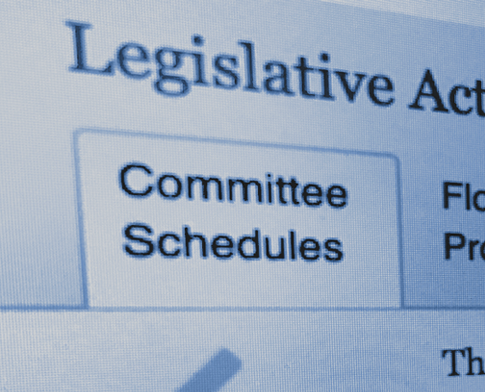Health Update (March 4)
| Drug Pricing
The Senate Finance Committee met this week for its second drug pricing hearing. The highly anticipated appearance of several pharmaceutical executives gave senators the opportunity to speak face to face with key players in the drug pricing process. While senators highlighted stories from their states about the unaffordability of prescription drugs, they explored some key themes including: why list prices for drugs are so high, why certain drugs have extremely long exclusivity periods, and why some drugs don’t face any real competition. Pharmaceutical executives discussed several solutions, but none of them believed that addressing high list prices alone would be a panacea. Some suggestions discussed by members of the committee included: Flipping misaligned incentives to ensure patients receive benefits of rebates, ensuring access to generic and biosimilar competition, and increasing transparency around drug company activity. The CREATES Act was the most frequently referenced piece of legislation, and no executive on the panel expressed opposition to the legislation. Capitol Hill Consulting Group covered the full hearing–a readout from Tuesday’s hearing can be found here.
The International Generic and Biosimilar Medicines Association (IGBA) sent a letter this week to the Director General of the World Intellectual Property Organization (WIPO), sharing concerns about the new Patent Information Initiative for Medicines (Pat-INFORMED). IGBA worries that the newly launched Pat-INFORMED database could “unnecessarily delay patient access to more affordable medicine.” The Pat-INFORMED database is hosted on a United Nations website, and the IGBA believes that the WIPO should reassess its decision to host the database.[1] To read the full letter, click here.
Opioid Epidemic
On Wednesday, the American Enterprise Institute held a discussion with Energy and Commerce Ranking Member Greg Walden (R-OR) on the opioid crisis. Among topics discussed, Ranking Member Walden talked about how the SUPPORT Act delivered critical aid to communities in need. As with many opioid discussions, the 21st Century Cures Act and Comprehensive Addiction and Recovery Act (CARA) were also mentioned as landmark pieces of legislation that made significant progress in the fight against opioid addiction. One area that Rep. Walden mentioned wanting to change is 42 CFR Part 2. Members of Congress are divided on whether to change the regulation which protects the confidentiality of substance abuse disorder patient records. Rep. Walden supports changing the regulation in order to ensure that doctors do not improperly prescribe medications to those in recovery from opioid addiction. Energy and Commerce Chairman Frank Pallone (D-NJ) opposed such a measure in 2018.[2] The full video of the panel discussion can be found here.
Yesterday, the Senate Appropriations Subcommittee on Labor, Health and Human Services, and Education met to discuss the ongoing opioid epidemic. Witnesses from hospitals and treatment centers from across the country provided updates to Senate appropriators on the tools they need to continue the fight against opioid addiction and abuse. The key theme each witness emphasized was adequate and reliable government funding for mental health and substance abuse treatment programs. A readout from the hearing can be found here.
Democrats Introduce Medicare for All Legislation
On Wednesday, Rep. Pramila Jayapal (D-WA) introduced H.R. 1384, a bill to establish a Medicare for All national health insurance program. The bill was highly anticipated as Medicare-for-all legislation has quickly become a core focus among Democratic presidential primary candidates. Such legislation has also faced fierce backlash from Republicans and more moderate Democrats. Rep. Jayapal’s bill would create a single-payer government health care program, with no charge to beneficiaries for copays, premiums, or deductibles. While the proposal does not include a CBO score or a pay-for, Rep. Jayapal mentioned higher taxes or employer contributions as a means to fund the bill. The text of the bill can be viewed here.
Measles Outbreak
This week, the House Energy and Commerce Oversight and Investigations Subcommittee held a hearing on the public health threat of a measles outbreak in America. Energy and Commerce Chairman Frank Pallone discussed the dangers of measles to children, those who are pregnant, and people with suppressed immune systems. He contrasted these dangers with the fact that a viable vaccine exists and lamented a “proliferation of disinformation” about vaccine safety.[3] Witnesses from the Centers for Disease Control and National Institute of Health affirmed their support for measles vaccinations. To view a recording of this hearing, please click here.
Senate Finance Investigations
Senate Finance Committee Chairman Chuck Grassley renewed a probe into the billing practices of tax-exempt hospitals. “As chairman of the Senate Judiciary Committee, I oversaw an investigation into the billing practices…that resulted in debt relief of almost $17 million for thousands of low-income patients. That issue is just as important to me now that I am chairman of the Finance Committee.” This investigation will seek to determine if tax-exempt hospitals are compliant with statutory requirements in the Internal Revenue Code.[4] The investigation was announced via a letter from Senator Grassley to IRS Commissioner Charles Rettig. The full text of the letter can be read here.
Chairman Grassley is also opening an investigation into nursing home quality oversight. Nursing home safety has long been a priority of Grassley’s—like the tax-exempt hospital investigation, he also oversaw investigations of nursing home abuse during his time in the Judiciary Committee. This week, the Finance Committee announced a hearing on abuse in nursing homes, which will be held next Wednesday, March 6th (more details below). Witnesses will include Antoinette Bacon, national elder justice coordinator at the Department of Justice, and Kate Goodrich, M.D., chief medical officer at the Centers for Medicare & Medicaid Services.
References
[1] Jim Keon. “Re: Patent Information Initiative for Medicines (Pat-INFORMED).” Letter, 26 Feb 2019. https://www.politico.eu/wp-content/uploads/2019/02/IGBA-Letter-on-Pat-INFORMED-Feb-26-20191.pdf?utm_source=POLITICO.EU&utm_campaign=86a83959b9-EMAIL_CAMPAIGN_2019_02_27_05_15&utm_medium=email&utm_term=0_10959edeb5-86a83959b9-189744525 [2] Greg Walden. “Navigating the evolving opioid crisis: A conversation with House Committee on Energy and Commerce Republican Leader Greg Walden (R-OR).” American Enterprise Institute, 27 Feb 2019. http://www.aei.org/events/navigating-the-evolving-opioid-crisis-a-conversation-with-house-committee-on-energy-and-commerce-republican-leader-greg-walden-r-or/ [3] Frank Pallone. “Pallone Remarks at Oversight Hearing on Measles Outbreak.” House Committee on Energy and Commerce, 27 Feb 2019. https://energycommerce.house.gov/newsroom/press-releases/pallone-remarks-at-oversight-hearing-on-measles-outbreak [4] Senator Chuck Grassley. “Grassley Renews Probe of Non-Profit, Tax-Exempt Hospitals.” United States Senate, 25 Feb 2019. https://www.grassley.senate.gov/news/news-releases/grassley-renews-probe-non-profit-tax-exempt-hospitals |
HOUSE.GOV
The Week Ahead
For the main events of the next week and more, go straight to the key events on the house.gov website.
SENATE.GOV
The Week Ahead
For the main events of the next week and more, go straight to the key events on the senate.gov website.


